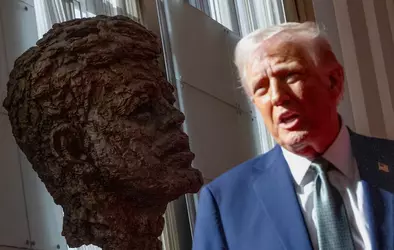President Trump’s national security team was stunned and forced to scramble after he announced on Monday that he would release 80,000 pages of documents related to the assassination of President John F. Kennedy with only 24 hours’ notice.
Administration officials had been working on releasing the records since January, when Mr. Trump signed an executive order mandating it. But that process was still underway on Monday afternoon when Mr. Trump, during a visit to the John F. Kennedy Center for the Performing Arts, said the files would be made available the next day.
By the time
the files were made public on Tuesday evening, some of the country’s top national security officials had spent hours trying to assess any possible security hazards under extreme deadline pressure.
John Ratcliffe, the director of the Central Intelligence Agency, had been emphasizing to senior administration officials that some documents had nothing to do with Mr. Kennedy and were developed decades after the assassination, according to four people with knowledge of the discussions. He wanted to make sure that other officials were fully aware of what the files contained and would not be caught off guard, but he was clear that he would not seek to impede any files from being released, the people said, speaking on the condition of anonymity to discuss sensitive internal deliberations.
Soon after Mr. Trump spoke on Monday afternoon, officials at the National Security Council quickly convened a call to map out a plan to take stock of which documents still needed to be unredacted. The release had to be coordinated with the National Archives and Records Administration. Some officials raised concerns about unintended consequences of rushing the release of the files, including the disclosure of sensitive personal information like the Social Security numbers of people who were still alive, the people said.
Officials involved in the process of declassification said the number of files had expanded greatly over many decades because, with each investigation into Kennedy-related material, information that had nothing to do with the assassinated president has come under that umbrella. In some cases, that includes documents created decades after his death, according to one person with knowledge of the process.
“President Trump made a promise to release all of the J.F.K. files — and he is delivering on that promise,” Karoline Leavitt, the White House press secretary, said in a statement. “Anyone surprised by this hasn’t been paying attention or has been willfully ignorant.”
When asked on Monday whether he knew what was in the files, Mr. Trump said that he had “heard about them” but that he had not received an executive summary.
“I’m not doing summaries,” he said.
Spokesmen for the N.S.C. and C.I.A. declined to comment. A National Archives spokesman did not respond to a request for comment.
For decades, historians and conspiracy theorists alike have clamored for more information on Kennedy’s death. A 1992 law required the government to release documents related to the killing within 25 years, except documents that could harm national security.


